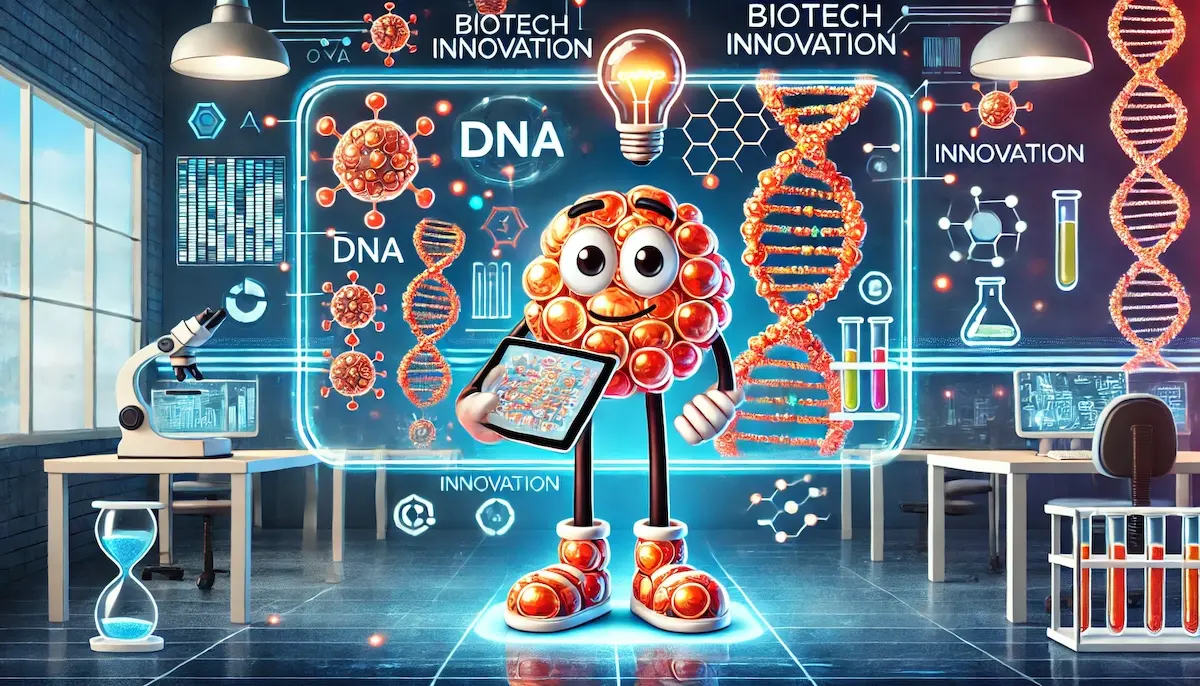Biotech innovation refers to the development of new technologies, products, and processes within the field of biotechnology that harness biological systems and living organisms to solve problems and create value. This innovation spans a wide range of industries, including healthcare, agriculture, environmental science, and industrial processes. By leveraging advances in genetics, molecular biology, bioengineering, and related disciplines, biotech innovation drives progress in areas such as drug development, genetic modification, biofuels, and sustainable agriculture.
Origins and Importance
The roots of biotech innovation can be traced back to ancient practices such as fermentation and selective breeding. However, modern biotech innovation began in earnest in the 20th century with the discovery of DNA’s structure and the advent of genetic engineering. Key milestones, such as the development of recombinant DNA technology in the 1970s and the sequencing of the human genome in 2003, have propelled the field forward.
Biotech innovation is critically important because it addresses some of the most pressing challenges facing humanity today. In healthcare, biotech innovation leads to the development of new therapies, vaccines, and diagnostic tools that improve patient outcomes and combat diseases. In agriculture, it enables the creation of crops that are more resistant to pests and environmental stresses, contributing to food security. Additionally, biotech innovation in environmental science and industrial processes supports sustainable practices and the development of alternative energy sources.
Key Areas of Biotech Innovation
- Healthcare and Pharmaceuticals: One of the most dynamic areas of biotech innovation is in drug discovery and development. Biotech companies are at the forefront of developing biologics, such as monoclonal antibodies and gene therapies, as well as new vaccine technologies like mRNA vaccines. Personalized medicine, which tailors treatments to an individual’s genetic profile, is another breakthrough enabled by biotech innovation.
- Agricultural Biotechnology: Biotech innovation in agriculture includes the development of genetically modified (GM) crops that are more resilient to environmental conditions, pests, and diseases. Innovations in this area also encompass sustainable farming practices, precision agriculture, and the development of bio-based fertilizers and pesticides.
- Environmental Biotechnology: This field focuses on using biological processes for environmental conservation and restoration. Biotech innovations here include bioremediation techniques to clean up pollutants, the development of biofuels from renewable resources, and the creation of biodegradable materials to reduce waste.
- Industrial Biotechnology: Often referred to as “white biotechnology,” this area involves using enzymes, microorganisms, and other biological processes for industrial applications. Innovations include the production of bio-based chemicals, plastics, and materials that are more sustainable and environmentally friendly than their petroleum-based counterparts.
- Genomics and Genetic Engineering: Advances in genomics and genetic engineering are driving innovation across multiple biotech sectors. Technologies like CRISPR-Cas9 enable precise editing of genetic material, opening new possibilities for curing genetic diseases, improving crop yields, and developing new bio-based products.
Benefits of Biotech Innovation
Biotech innovation offers numerous benefits across various sectors:
- Improved Healthcare Outcomes: Innovative biotech therapies and diagnostics lead to better prevention, diagnosis, and treatment of diseases, significantly enhancing patient care.
- Increased Agricultural Productivity: By developing crops that are more productive and resilient, biotech innovation helps ensure food security in the face of growing global demand and environmental challenges.
- Environmental Sustainability: Biotech innovations contribute to environmental protection by enabling cleaner industrial processes, renewable energy production, and the bioremediation of contaminated environments.
- Economic Growth: The biotech sector is a major driver of economic growth, creating high-quality jobs, attracting investment, and generating significant revenue through the commercialization of innovative products and technologies.
- Ethical and Social Impact: Responsible biotech innovation has the potential to address ethical and social challenges, such as providing access to life-saving treatments in underserved regions and developing sustainable practices that reduce environmental impact.
Challenges and Considerations
While biotech innovation offers transformative potential, it also comes with challenges:
- Regulatory Hurdles: Innovators must navigate complex regulatory environments to bring new biotech products to market, which can be time-consuming and costly.
- Ethical Concerns: Innovations such as genetic engineering and synthetic biology raise ethical questions regarding their impact on society and the environment, requiring careful consideration and oversight.
- Public Perception: Public acceptance of biotech innovations, particularly in areas like GMOs and genetic editing, can be mixed, affecting market adoption and policy decisions.
- High R&D Costs: The development of new biotech products often involves substantial investment in research and development, with long timelines before seeing a return on investment.
- Intellectual Property: Protecting intellectual property rights while fostering collaboration and innovation is a delicate balance that biotech companies must manage.
Conclusion
Biotech innovation is a powerful engine of progress, driving advancements in healthcare, agriculture, environmental sustainability, and industrial processes. By harnessing the power of biology, biotech innovators are developing solutions to some of the most pressing challenges of our time. Despite the complexities and challenges involved, the benefits of biotech innovation—ranging from improved health outcomes to environmental protection and economic growth—make it a vital and dynamic field with far-reaching implications for the future.
Blockfine thanks you for reading and hopes you found this article helpful.
